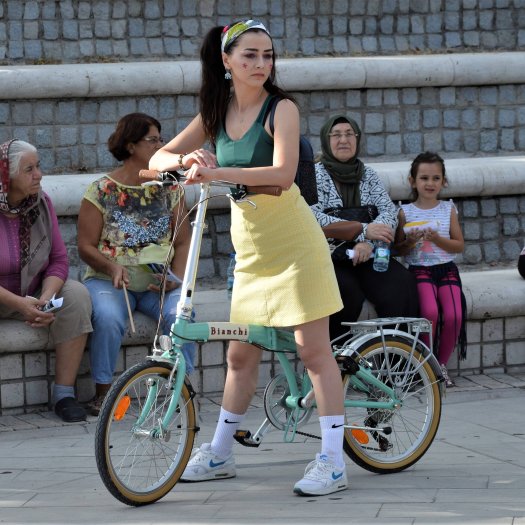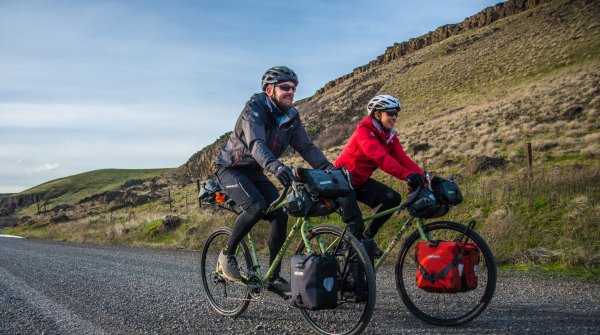The Nigerian capital Lagos has a waste problem: only 40 percent of the waste of its more than 20 million inhabitants is disposed of, and just 13 percent is recycled. That's why Bilikiss Adebiyi-Abiola, who returned to her home country after completing her master's degree at MIT in Boston, founded the startup Wecyclers. Using cargo bikes, the Wecyclers set out in Lagos to collect waste directly from the population and then take it to recycling plants. The advantage of the bikes is that they can get into the countless streets in the city that are too narrow for cars or trucks, thus making it possible to dispose of waste even in the most densely populated neighbourhoods. Residents receive points for dropping off recyclable trash, which they can exchange for cash or household goods. Wecyclers has long worked with the city's waste management authority, creates fairly paid jobs, and has already been awarded the African Development Prize for recycling by bike.
Like many rapidly growing Indian cities, the megacity of Gurgaon, just outside the giga-metropolis of New Delhi, has the problem of overcrowded streets. In order to stop the avalanche of cars and motorcycles, Gurgaon, like more than 70 other Indian cities, has opted for car-free Sundays. Every Sunday from 6 a.m. to 12 p.m. on "Raahgiri Day," the streets belong to bicycles and pedestrians. What began in 2013 with just a few streets now extends to more than 15 kilometers, where motorized vehicles are excluded and instead people leisurely cycle or cultural and sports activities dominate the streetscape.
It all started with a simple Facebook group: With the idea of a "Fancy Women Bike Ride", the Turkish woman Sema Gür wanted to draw more attention to a worldwide car-free day in Izmir. Back in 2013, 300 women responded to the call, and the Facebook event has since become a worldwide movement: On September 19, 2021, the "Fancy Women Bike Ride" will take place in over 150 cities worldwide. The goal: to make women on bikes visible in the city and to encourage women and girls to actively claim their right to urban life. This is one of the reasons why participants in the event decorate their bikes and themselves to stand out as garishly as possible.
Bicycles are almost invisible in the cityscape of the Tunisian capital. Accordingly, many places in Tunisia lack infrastructure such as cycle paths or parking spaces. To change this, a small group of bicycle fans has founded "Velorution Tunisie", which wants to end the shadowy existence of the bicycle. Every month, the initiative organizes a bike parade called "Tunis by Bike". It started with 20 people, and in the meantime hundreds of bicycles have taken part. In addition to the parades, it is above all the bicycle lessons and repair services with which Velorution cultivates and constantly expands Tunisia's bike community.
The city of the future uses verticality. This is best seen in Xiamen, China. Because here, bicycles, pedestrians and cars no longer have to share the streets. Instead, you can look down on the gridlocked traffic from your bike. The city of 4 million inhabitants is home to the world's longest elevated cycle path, the 7.6-kilometer Cycle Skyway. And it comes with a massive amount of useful features: Bikesharing and rental stations are integrated as well as eleven hubs where you can directly access public transport. 2,000 bikes can be on the move here at the same time during rush hour.
- Awards
- Mountain sports
- Bike
- Fitness
- Health
- ISPO Munich
- Running
- Brands
- Sustainability
- Olympia
- OutDoor
- Promotion
- Sports Business
- Textrends
- Triathlon
- Water sports
- Winter sports
- eSports
- SportsTech
- OutDoor by ISPO
- Heroes
- Transformation
- Sport Fashion
- Urban Culture
- Challenges of a CEO
- Trade fairs
- Sports
- Find the Balance
- Product reviews
- Newsletter Exclusive Area
- Magazine







